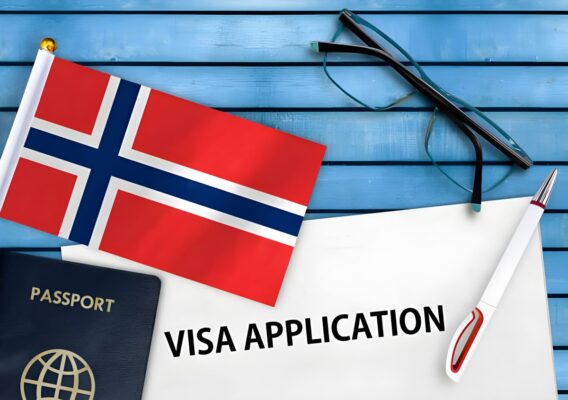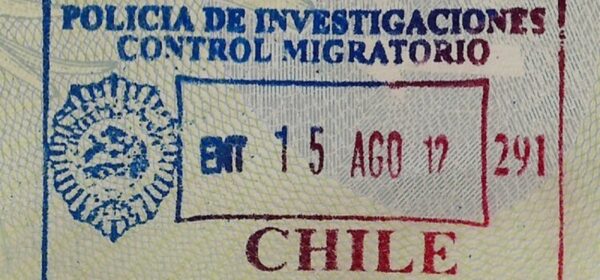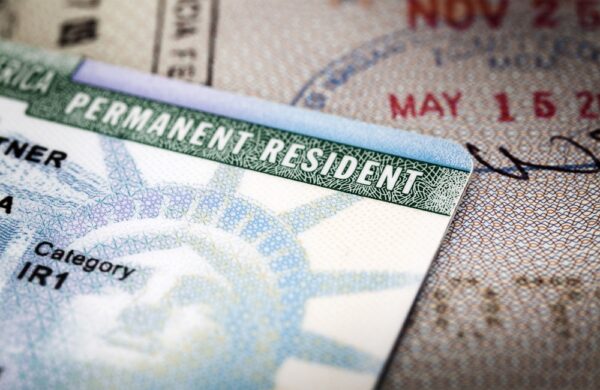Norway is among the world’s best countries to live in. The country also has immigrant-friendly policies, making it one of the most popular destinations for immigrants. Between the beautiful natural environment and access to excellent healthcare and education, there are a million reasons to immigrate to Norway. Although the country opens its doors to thousands of legal expats annually, it is quite challenging to move there. The Norwegian immigration authorities have set up policies to ensure that only qualified applicants can move into the country. Let’s find out the eligibility requirements and how to submit a success-prone application.
Why You Should Immigrate to Norway
The Scandinavian Kingdom of Norway practices a constitutional monarchy with Oslo as its capital city. The country is home to barely over five million, with at least 877,200 legal immigrants making up a sixth of the population. Norwegian is the official language, and the Norwegian krone (NOK) is the legal tender used for business in the country. Norway’s economy is robust and fast-growing, with state ownership in strategic areas keeping it stable. Foreign skilled workers are welcome to take advantage of this stable economy and low population.
With a landmass of 385,207 square kilometers, Norway has many untapped areas. Residents and tourists enjoy the soaring white mountains, breathtaking fjords, and emerald-green forests, which are perfect for exhilarating outdoor pursuits like hiking and kayaking. Norway also ranks first in healthcare systems based on access to care and overall performance.
Another great reason to immigrate to Norway is their educational system. Norway boasts some of the best tertiary schools in the world. Also, attending public universities is tuition-free for citizens and even international students. As if affordable, high-quality healthcare, attractive surroundings, rewarding job opportunities, and free, world-class education are not enough, Norwegians are known for their hospitality and humanitarianism even in history. Additionally, the country's chill atmosphere and mundane cost of living will sweep you off your feet.
Who Can Immigrate to Norway?
All foreign nationals who wish to enjoy the benefits Norway offers can move there. Nevertheless, the relocation process will differ depending on your country of origin/residence. Every foreigner, except EU/EEA or Switzerland citizens, needs a visa and a residence permit to immigrate to Norway (the residence permit does not apply to tourists on visitation visas). They have to obtain this permit before settling at a Norwegian embassy or immigration authorities.
On the other hand, EU/EEA/Switzerland citizens can move to Norway permanently (without a visa) if they are working, studying, or have a Norwegian family member. After staying in the country for three months, they must simply register their stay with the local Norwegian authorities. The first three months are often considered visitation or tourism.

How to Immigrate to Norway
As with most countries, visa procedures in Norway depend on your country of origin. The steps and documents to include in your application are also reliant on the perks of your visa category. Moreover, in some cases, you may not even be required to submit an application to enter the country.
Norway Immigration for EU Nationals
As a citizen of the EU/EEA countries, you can freely enter Norway and stay for up to three months without a visa. However, if you are staying longer than three months, you must register with the local police. This registration allows you to live, study, and work in the country for as long as you want.
Furthermore, citizens of other Nordic countries do not need a visa or residence permit to immigrate to Norway. In this case, you do not need to register with the local police at any point of your stay. The stead can be permanent if you wish. Nevertheless, you must comply with the Norwegian regulations regarding registration in the National Population Register. EU/EEA citizens can apply for permanent residency after five years of living in Norway. The application must be done in person before your current residence permit expires.
Norway Immigration for All Foreigners
Every foreign national (not from EU/EEA member states or any countries under special trade/border agreements with Norway) looking to immigrate to Norway must apply for a long-stay visa. Norwegian immigration authorities also give out visitation visas for foreigners looking to visit the country for less than three months (90 days). The long-stay visas come with temporary residence permits that allow holders to live, work, and or study in Norway, depending on the kind of visa. Although they are called ‘long-stay visas’, they are temporary and are valid for between six months and five years, after which you must renew them to extend your stay.
As with other countries, different types of long-stay visas are available depending on your purpose of traveling to the country. Therefore, you get visas depending on what you want to do in the country. This also determines the procedures to follow when applying. Check out the most common legal pathways and how to qualify for them.
Common Legal Channels For Norway Immigration
As with most countries, different types of long-stay visas are available depending on your purpose of traveling to the country. Therefore, you get visas depending on what you want to do in the country. This also determines the procedures to follow when applying. Check out the most common legal pathways and how to qualify for them below:
1. Norway Immigration for Work
To move to Norway for work, you must obtain a work visa (often called a temporary residence permit for work). There are many types of work visas with varying stay periods and access. Moreover, all work visas require that you secure a job offer from an eligible Norwegian employer before you begin the application process for the visa. Also, you have to start the application process online via the official website of the Norwegian Directorate of Immigration (UDI), before finishing up at the nearest Norwegian embassy or consulate to you.
If your application is successful and you arrive in Norway, you must go to the local police station and get your residence card immediately. The validity of the work visa is usually two years and can be renewed for another two years. The best part about these work visas is that you can apply for a permanent residence permit after staying in the country for at least three years. Some essential guidelines must be met to achieve this.
The documents required for a work visa application are a Valid travel passport, a work visa application form and checklist of documents provided (filled out), two recent passport photos in compliance with stated guidelines, Details of your CV and qualifications, evidence of your job offer stating the salary agreed upon, and Proof of accommodation in Norway, like a written rental contract. Additionally, you can live and work remotely in the Svalbard region of Norway. However, first, you must obtain a Svalbard digital nomad visa.
2. Immigrating to Study in Norway
You can immigrate to Norway if you secure admission into a Norwegian university or college. This endeavor requires you to obtain a student visa (Norway student permit). Public universities in the country are tuition-free and, as such, quite challenging to get into due to the high number of applications. So you may have a better chance of securing admission to a private institution.
First, you secure admission, then the study visa, after which you can enter Norway and begin your studies. Student visas for Norway are generally issued and renewed for the duration of your studies. You will receive an indication of the validity period on the Study Permit. Moreover, you can apply for a work visa to continue your stay in Norway when you graduate. It is important to note that you cannot get a permanent residence permit directly with a student visa. You have to get a work visa first.
3. Norway Immigration for Family Reunification
The Norwegian immigration service offers provisional visas for family reunification. Family members of Norwegian citizens and permanent residents can apply for this visa to stay in the country for more than ninety days. Also, If you want to move to Norway with your family members, you can apply with them as dependents. However, not every direct relative is qualified for this method of immigration. You can only bring in your spouse or registered partner, a cohabitating partner, children under 18 years of age, siblings who are minors, dependent children over the age of 18, and parents.
Upon arriving in Norway, you must register with the local police and receive your residence card. Visas will be issued in conjunction with those of your family members for a period of one to three years. You can also renew the visa and obtain a permanent residence permit.
Norwegian Citizenship and Permanent Residency
Expats can apply for permanent residence in Norway after living on an eligible visa under specified guidelines for at least three years. This is only applicable to immigrants holding work or family reunification visas who have satisfied some required eligibility criteria. Meanwhile, you need to have lived in the country for at least seven out of the past ten years to qualify for Norwegian citizenship.
To apply, you must have a valid permanent residence permit. In addition, each residence permit you held during your ten-year stay in Norway must have been valid for at least one year. Immigrants living in Norway with their spouse or partner can win Norwegian citizenship after three years of residence. A vital requirement for citizenship is to pass a social studies test and a language test to demonstrate your knowledge of Norwegian and have a clear criminal history. The best part is that you do not need to renounce your current citizenship if you wish to become a Norwegian citizen.
Moving to Norway With Pets
Pet lovers, the good news is that You can move with your pets to Norway. However, you satisfy some requirements to be eligible. As usual, the criteria are different depending on your country of origin.
A. EU Nationals
You must meet the following requirements if you are bringing pets from EU countries:
1. Each pet must have a microchip with ISO standard 11784, Annex A to ISO standard 11785, or a readable tattoo.
2. Your pet(s) must have a valid anti-rabies vaccination. An anti-echinococcus treatment is compulsory for dogs.
3. Your pet(s) must have an EU pet passport.
B. Non-EU Nationals
If you are bringing pets from a country outside the EU, you must comply with the following requirements:
1. Your pet(s) must have a microchip with ISO standard 11784, Annex A to ISO standard 11785, or a readable tattoo.
2. All pets must have valid anti-rabies vaccinations and have undergone a valid rabies antibody titration test.
3. Your dog(s) should not be among the banned breeds and must have received an anti-echinococcus treatment.
4. All pets must have an identification document, an animal health certificate, or a pet passport.
5. All pets must enter through the travelers’ entry point, such as the Oslo Airpot or Storskog.
6. All pets must comply with the safeguard measures.
The Banned dog breeds include The Pit Bull Terrier, the American Staffordshire Terrier, the Fila Brasileiro, the Toso Inu, the Dogo Argentino, and the Czechoslovakian Wolfdog.
Conclusion
Norway is an appealing option due to its high quality of life, beautiful nature, emphasis on outdoor activities, low crime rate, universal healthcare, and reputation as a great place to raise a family.
Immigration matters in Norway are overseen by the Norwegian Directorate of Immigration (UDI), with a significant portion of the paperwork being handled by the Norwegian police. There exist various types of residence permits, and the application process varies depending on the specific permit being applied for and the applicant's country of citizenship, among other considerations.
















